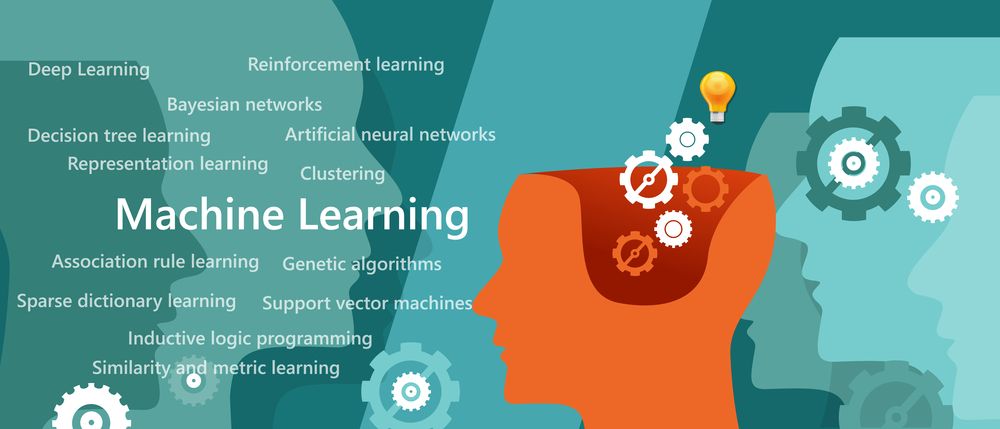Machine Learning Algorithms Revolutionize Customer Behavior Prediction for D2C Brands in India

As the Direct-to-Consumer (D2C) business model gains momentum in India, companies are constantly seeking ways to improve their customer acquisition and retention strategies. One of the most promising avenues for doing so is through machine learning (ML) algorithms, which can help predict customer behavior and identify the most profitable channels for different products.

Machine learning algorithms are designed to analyze large sets of data and identify patterns and correlations that might not be visible to the human eye. By leveraging these algorithms, D2C brands in India can gain valuable insights into customer preferences, behaviors, and needs, which can then be used to optimize marketing and distribution strategies.
Here are some of the ways in which machine learning algorithms are helping D2C brands in India:
Predicting customer behavior: Machine learning algorithms can analyze customer data, such as purchase history, browsing patterns, and social media activity, to predict future behavior. For instance, if a customer has been consistently purchasing a certain type of product, the algorithm can predict that they are likely to buy more of the same product in the future. This information can be used to tailor marketing messages and product recommendations to the customer's preferences, increasing the likelihood of a sale.
Identifying profitable channels: Machine learning algorithms can also analyze data on customer behavior across different channels, such as social media, email, and search engines, to identify which channels are the most profitable for different products. For instance, if a certain product is more likely to be purchased by customers who clicked on a social media ad, the algorithm can identify that channel as a more effective marketing avenue for that product.
Personalizing marketing messages: By leveraging customer data, machine learning algorithms can also create personalized marketing messages that are tailored to each individual customer. For instance, if a customer has been browsing a certain product category, the algorithm can send them a personalized email with product recommendations that are relevant to their interests. This approach can increase the likelihood of a sale and improve customer satisfaction.
Improving product distribution: Machine learning algorithms can also analyze data on product sales across different geographies and channels to optimize product distribution. For instance, if a certain product is selling well in a certain region, the algorithm can suggest increasing the product's availability in that region to capitalize on the demand.
Machine learning algorithms can also help D2C brands in India in several other ways. Here are some of them:

- Inventory Management: Machine learning algorithms can predict demand for different products and help D2C brands manage their inventory more efficiently. By accurately predicting demand, D2C brands can avoid overstocking or understocking products, reducing inventory costs and improving customer satisfaction.
- Fraud Detection: D2C brands are vulnerable to fraud, such as credit card fraud, fake reviews, and account takeover. Machine learning algorithms can analyze vast amounts of data to identify suspicious activities and patterns, helping D2C brands detect and prevent fraud.
- Customer Service: Machine learning algorithms can analyze customer interactions and sentiment data to identify common issues and areas for improvement. This information can be used to improve customer service and create a better overall customer experience.
- Product Development: Machine learning algorithms can analyze customer feedback and product reviews to identify areas for improvement and new product opportunities. This information can help D2C brands create better products and stay ahead of the competition.
Conclusion
Machine learning algorithms offer numerous benefits to D2C brands in India. By leveraging these algorithms, D2C brands can predict customer behavior, identify the most profitable channels, manage inventory more efficiently, detect fraud, improve customer service, and develop better products. While implementing machine learning algorithms can be challenging, the benefits are significant, and D2C brands that invest in this technology are likely to gain a competitive advantage in the market.
FAQs
Q: How do machine learning algorithms revolutionize customer behavior prediction for D2C (Direct-to-Consumer) brands in India?
A: Machine learning algorithms analyze vast amounts of customer data to uncover patterns, preferences, and trends, enabling D2C brands to predict and understand customer behavior more accurately.
Q: What benefits do D2C brands in India gain from using machine learning algorithms for customer behavior prediction?
A: By utilizing machine learning algorithms, D2C brands can personalize marketing campaigns, improve customer targeting, enhance product recommendations, optimize pricing strategies, and boost overall customer satisfaction.
Q: Which machine learning algorithms are commonly used for customer behavior prediction in the D2C sector?
A: Popular machine learning algorithms used for customer behavior prediction in D2C brands include decision trees, random forests, logistic regression, support vector machines (SVM), and neural networks.
Q: How do machine learning algorithms help D2C brands predict customer preferences and purchase behavior?
A: Machine learning algorithms analyze historical customer data, such as purchase history, browsing patterns, demographic information, and social media interactions, to identify patterns and make accurate predictions about future customer behavior.
Q: Can machine learning algorithms help D2C brands in India improve customer retention?
A: Yes, machine learning algorithms can identify key factors influencing customer churn and loyalty, enabling D2C brands to implement targeted retention strategies and personalized interventions to retain customers.
Q: Are there any challenges associated with implementing machine learning algorithms for customer behavior prediction in the D2C sector?
A: Challenges may include data privacy concerns, data quality and preprocessing, model interpretability, and the need for skilled data scientists to implement and optimize machine learning algorithms.
Q: How do machine learning algorithms enhance customer segmentation for D2C brands?
A: Machine learning algorithms can segment customers based on various characteristics and behaviors, allowing D2C brands to create targeted marketing campaigns, tailor product offerings, and deliver personalized experiences to different customer segments.
Q: Can machine learning algorithms predict future trends and changes in customer behavior for D2C brands?
A: Yes, machine learning algorithms can identify emerging patterns and trends in customer behavior, helping D2C brands anticipate shifts in preferences, adapt marketing strategies and stay ahead of the competition.
Q: How do machine learning algorithms handle the large volumes of customer data generated by D2C brands?
A: Machine learning algorithms employ techniques such as data clustering, dimensionality reduction, and scalable processing frameworks to handle and analyze large datasets efficiently.
Q: What role does machine learning play in improving the overall customer experience for D2C brands in India?
A: By accurately predicting customer behavior, machine learning algorithms enable D2C brands to deliver personalized recommendations, seamless interactions, customized offers, and exceptional customer service, thereby enhancing the overall customer experience.




